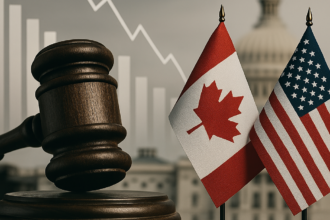International trade is changing — and not for natural reasons. The so-called “deglobalization” has been touted by governments, analysts and even investors as an “inevitable path”, a logical response to recent crises. But there is something deeper going on. We are witnessing not just a decline in global trade – but a advance of the State over voluntary exchanges.
The right name for this is not deglobalization. It is renationalization.
Globalization as a spontaneous order
True globalization was not a government policy. It emerged from the natural logic of the market: specialization, division of labor, economies of scale, and access to new consumers. Throughout the 20th century, the expansion of trade was the result of spontaneous order—not central planning.
As he taught well Friedrich Hayek, “the most efficient social processes are not those that are constructed, but those that emerge from freedom.” The global market was exactly that: an evolution, not an engineering.
The perfect excuse: crisis, pandemic and security
In recent years, States have taken advantage of fear and uncertainty to justify what they have always wanted: power over the flow of goods, capital and information.
The discourse of “national security,” “food sovereignty,” “productive resilience” — all of this sounds nice, but it hides a simple reality: governments want to choose who can sell what, to whom, and under what conditions.
This is not a new movement. It is an old interventionist instinct dressed in modern clothes.
Who loses from this? Everyone. But especially the poorest.
The renationalization of commerce does not just make products more expensive — it weakens competition, destroys innovation and creates markets protected by privileges. The consumer loses. The entrepreneur loses. The economy becomes less dynamic, more cartelized.
And as always warned Frederic Bastiat, “the difference between a bad economist and a good economist is that the former focuses on what is seen; the latter also considers what is not seen.”
What you don't see in today's trade barriers are:
- The businesses that won't come up
- The jobs that will not be created
- Prices that will not fall
Deglobalization or institutional regression?
What we are living is the regression to 20th century industrial policy, now disguised as “sovereign reindustrialization.” It is the return of the State as a central actor in trade — as definer, collector and direct beneficiary of exchanges.
It is no coincidence that the same people who criticized “global capitalism” now celebrate tariffs, subsidies and sanctions. It is the old dirigisme coming back in a new form.
Conclusion
Deglobalization, when imposed from the top down, is not the answer to crises — is the cause of the next one.
If we want to protect economic freedom, we need to defend trade as it has always been: a relationship between free individuals, not between national bureaucracies.
What’s at stake is not just efficiency — it’s freedom.





